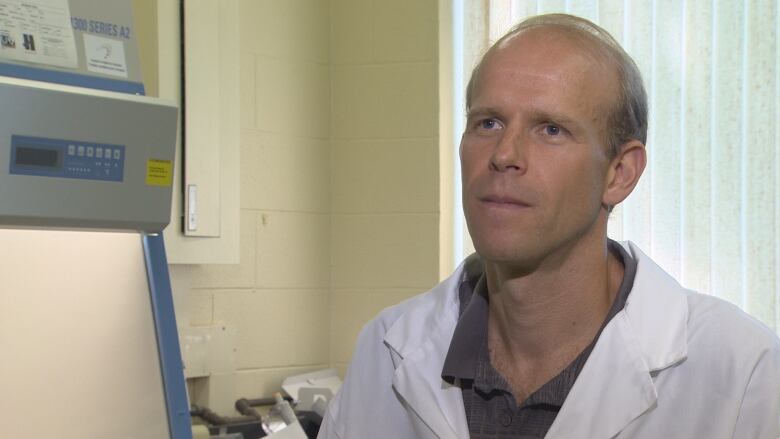Ontario dog first in Canada to test positive for COVID-19, but researcher says there are likely more
Dogs are 'innocent bystanders' when it comes to virus, says professor at University of Guelph vet college

An Ontario dogliving with four human COVID-19 patientsis the first dog in Canada to test positive for the virus. But researchers say thediscovery doesn't mean pet owners need to worry.
Research in other countries shows that dogs are particularly susceptible to COVID-19 in the animal kingdom, Weese said. He said he suspects there have been other Canadian dogs with the virus,but they weren't tested.
"This isthe first confirmed positive we've found," he said, though he noted "this is probably not the first and probably won't be the last."
Weese is part of the study that found the infected pet,and said while dogscan be infected with COVID-19, the majority of them don't get sick and seem to get over the disease relatively quickly.
"Dogs in particular are the innocent bystanders in this," Weeseexplained. "They get infected by us ... andthe odds of that going any further beyond that dog, I think, are very low."
While news of the case might create fear for thosewho love animals, Weese stressed that it doesn't change the messaging for pet owners "if you have COVID in the house, household isolation is a family activity [and] your dog is part of the family."
A team from the university has tested roughly 40 dogs and cats for the virus so far.
Testing is trickywork, Weesesaid, because researchers have a tight window of time in which to do it.
They have to test a pet after an owner gets infected and has received a positive test result, then visit and take nose, throat and rectal swabs from a squirming animal.
The team is also doing antibody testing, which has shown antibodies in a "reasonable percentage of dogs and cats," said Weese, meaning it's likely the animals were infected at some point.
Experimental studies and field work indicate dogs most likely only shed the virus for a short period of time and manage to eliminate it on theirownwithin afew days to a week,he added.
Dogs and owners 'doing well'
The Niagara dog that tested positive was one of two in the home and their owners reported nothing that indicated they were obviously sick, said Weese.
The dogs were"bright, alert, normal" during testing. While one test came back positive, the other was "borderline positive," said the professor, who believes it mayhave been infected earlier, or at a lower level.
"At last check, both dogs were fine, everyone in household sounds like they're doing well," he said.
Weesedescribed COVID-19 as a "human virus."
There is some risk of animal-to-human transmission when it comes to mink, and experiments have shown infected catscan pass the virus to other cats, but that has not been shown in dogs, he said.
"If your dogs has COVID or is infected with this virus, it got it from you or someone else in the household."
A common-sense approach to hand hygiene and isolation should keep both people and animals safe from spread, he said.
"If we're all infected and we're staying in the house, but the dog is able to go outside, or the dog goes to the vet clinic or the groomer orthe kennel, that's when some degree of risk might come in," said Weese.
"Keep your dog away from other people and other animals during that time period. The risk is really low, but it's something we can avoid."
That advice is similar to a veterinary advisory shared by the province last week, whichalso directed people who are self-isolating after exposure to a case of COVID-19 to restrict contact with pets or other animals, following the same precautions as they would with people.
No need to run from dogs and cats
Weese said the team's aim is to understand COVID-19 in animals to try tomake sure it stays a human diseasethat's easier to contain.
They also want toensure animals can't spread the virus outside households
"We try to balance awareness with 'don't freak out' messaging. We don't want people running, screaming from every dog and cat they see," he said.
"We're doing this to figure out this virus. For this virus and for the next one that comes along."
With files from Canadian Press












_(720p).jpg)


 OFFICIAL HD MUSIC VIDEO.jpg)
.jpg)



























































































